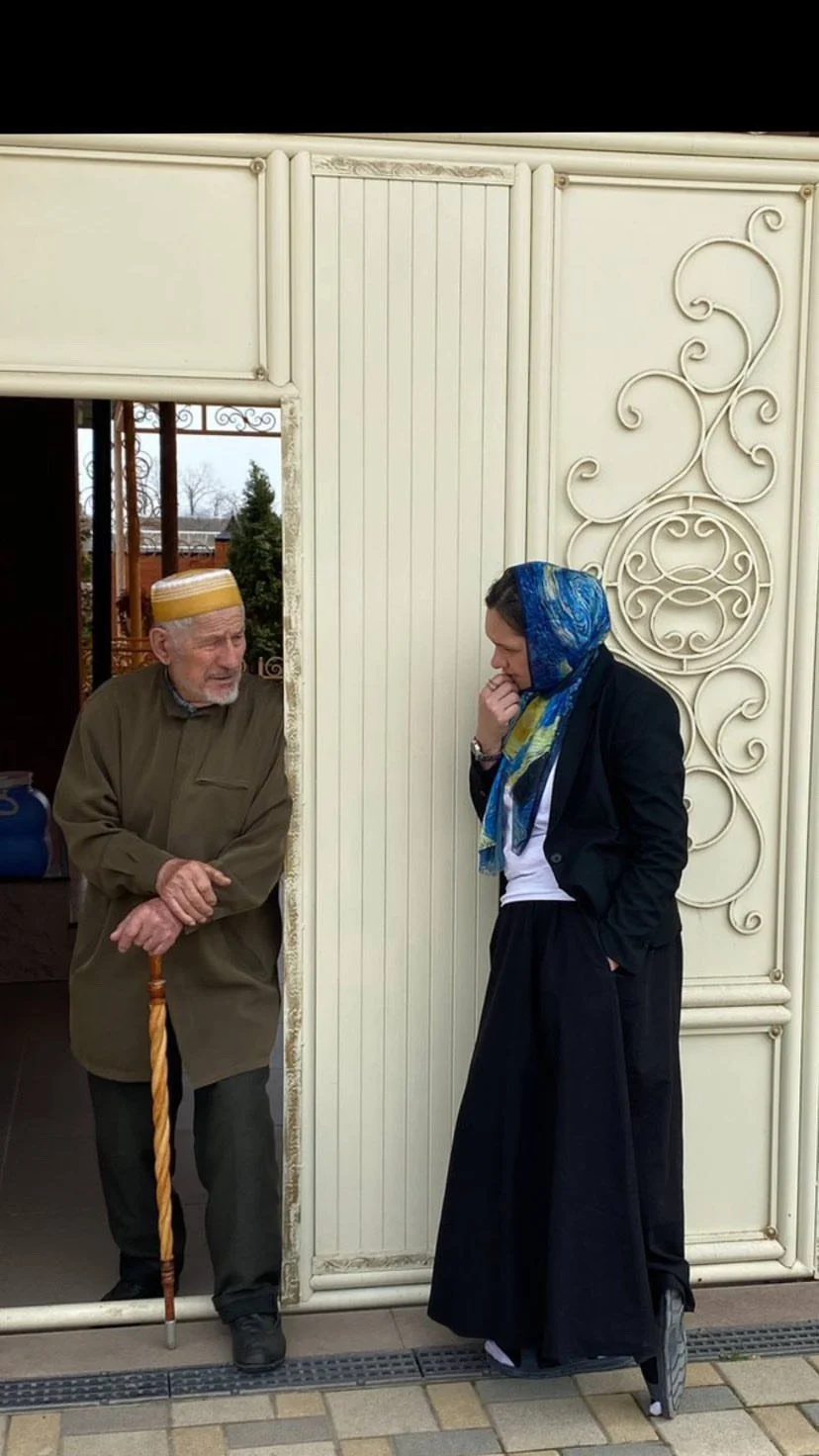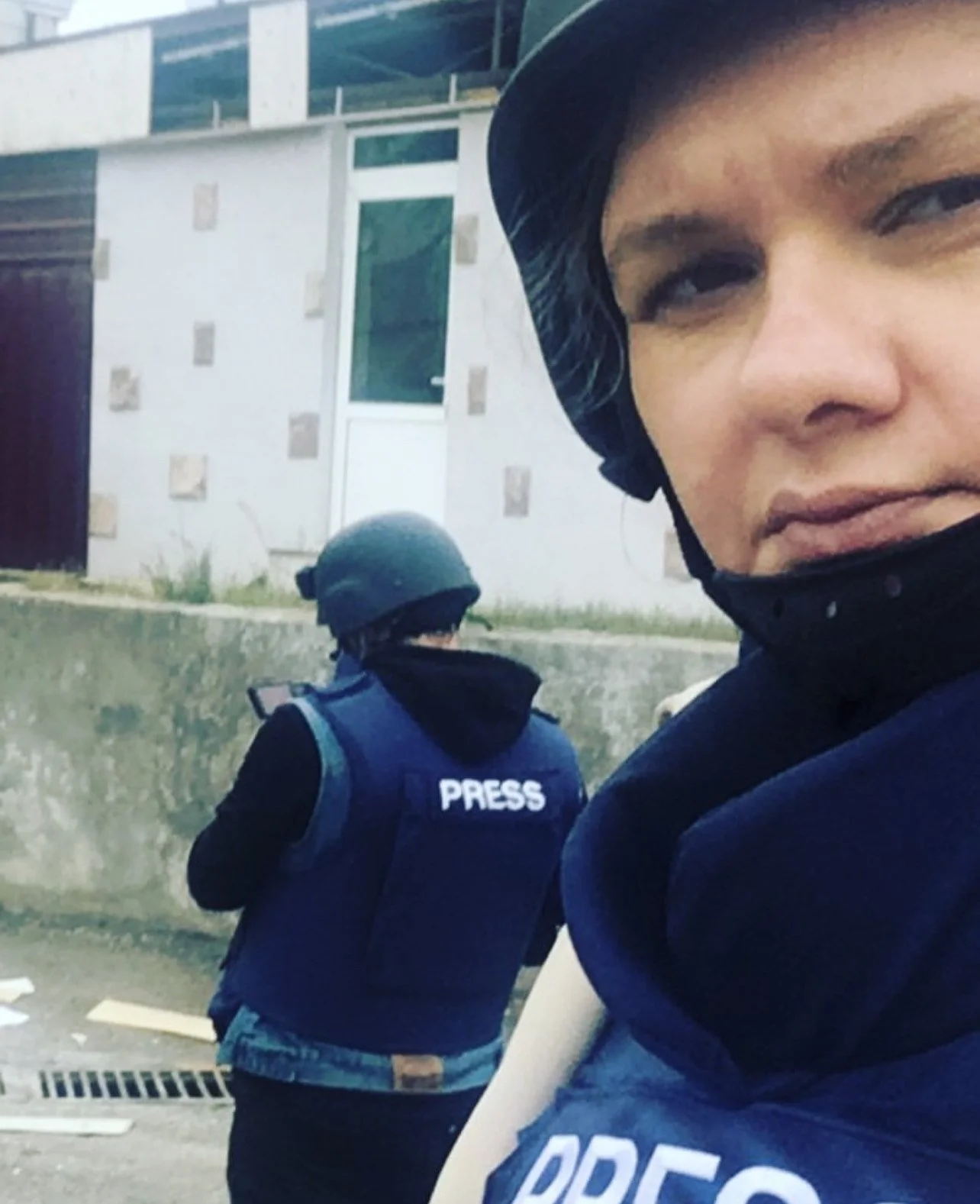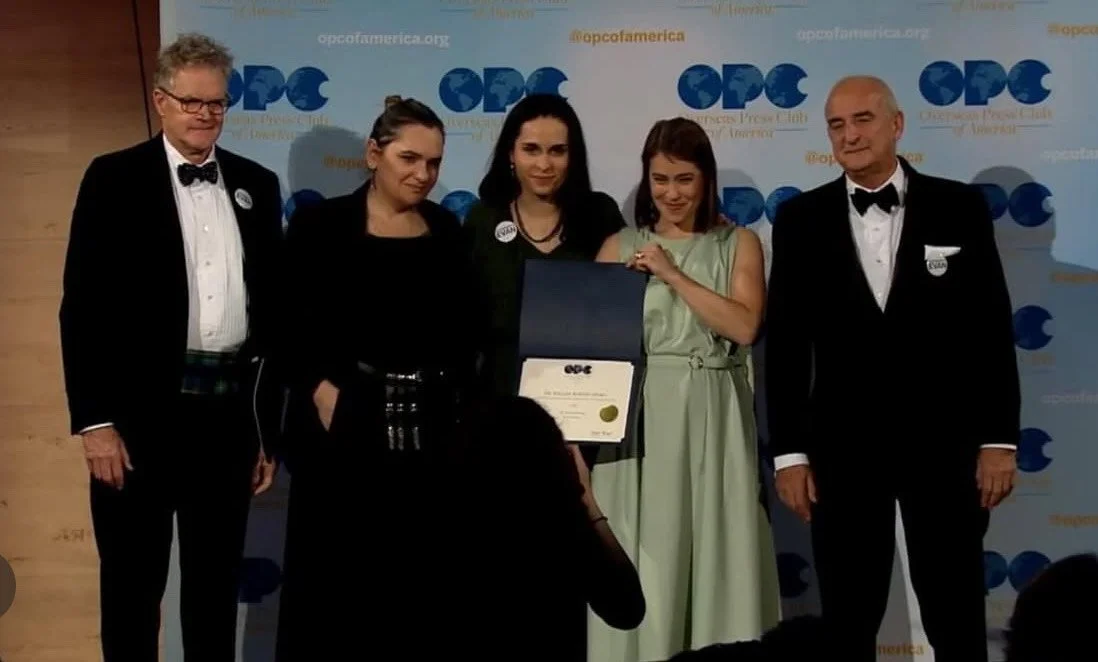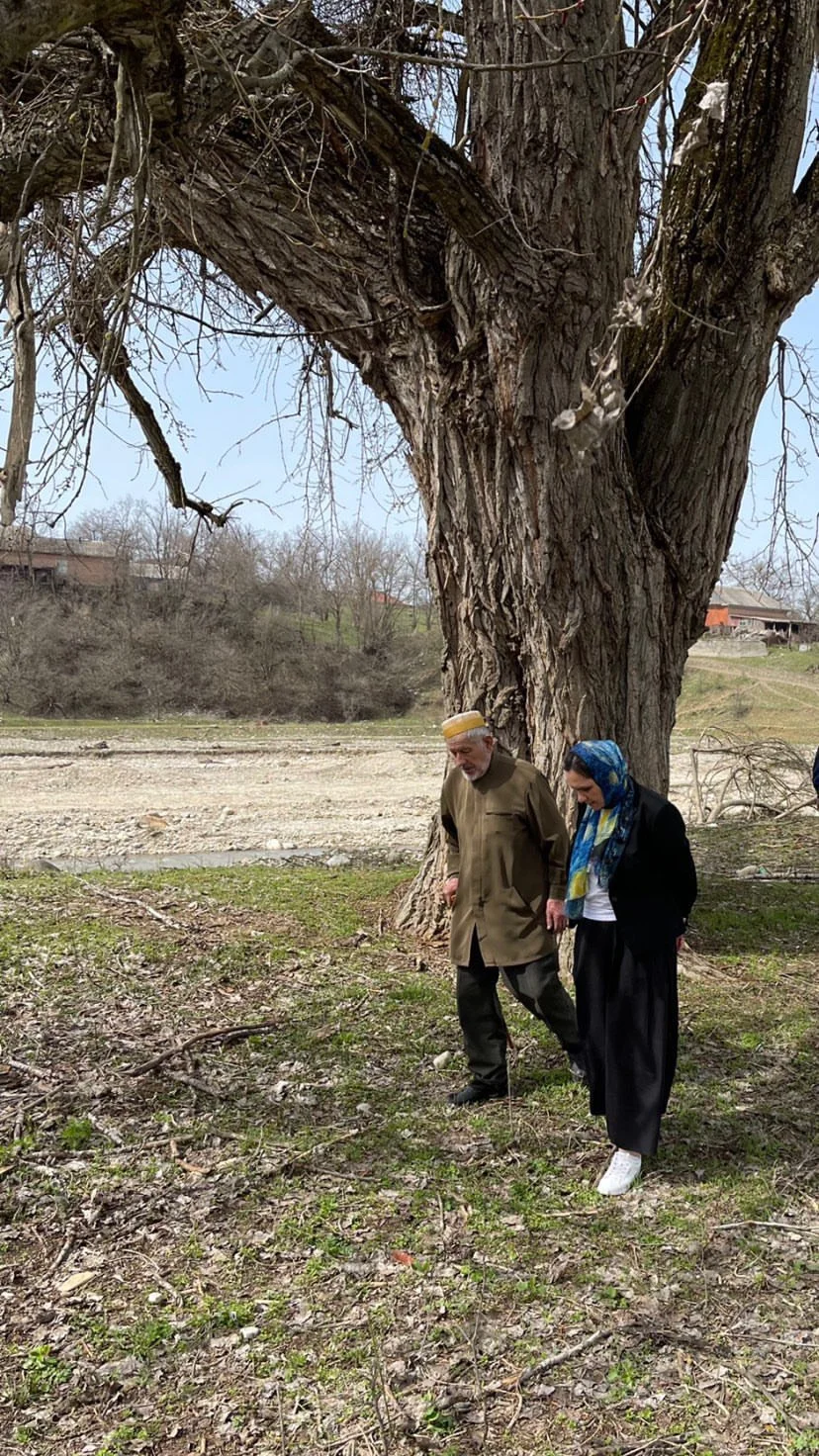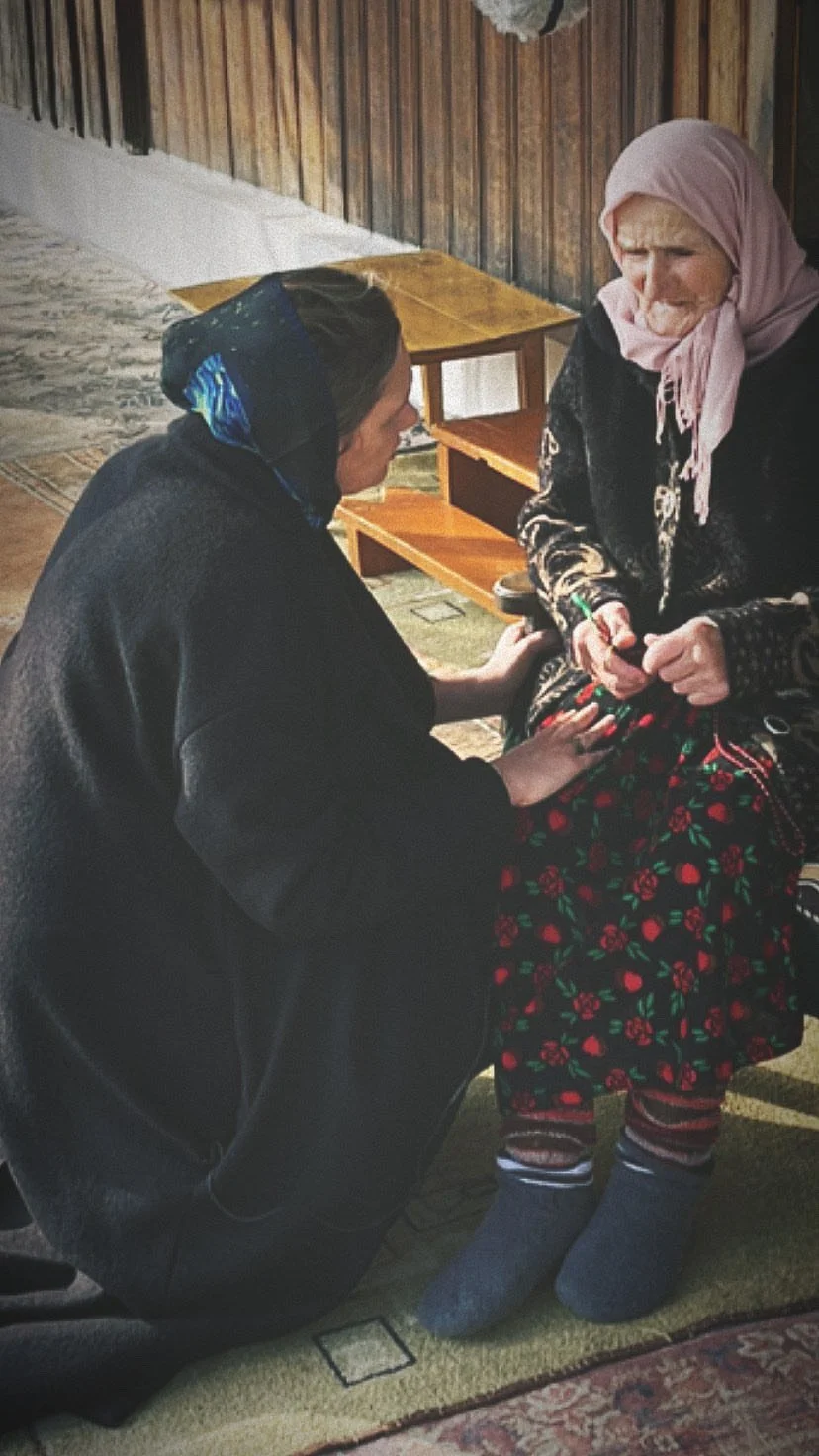Hot Coffee conversation with a reporter and researcher, Milana Mazaeva
Published Tuesday, September 2, 2025
Milana Mazaeva is a Chechen-born journalist who writes for The New York Times. I met Milana in New York last year, where we discussed shared Caucasian roots, strong women coming from those mountains, and what it means to be from a region haunted by consecutive generational traumas. Born and raised in Grozny, Chechnya, Milana came of age during the turbulence of the Chechen wars—13 at the outbreak of the first conflict and 18 when the second began. Spending much of this period in Grozny left an indelible mark, shaping her identity and sparking a passion for journalism through witnessing the profound influence of words. Milana’s career began in local media before expanding to collaborations with both Russian and international outlets, including TV Rain, The Guardian, The New Yorker, Libération, and others. She joined The New York Times in 2022, that same year, she contributed to a Times team that was awarded the Pulitzer Prize for Visual Investigation. Her articles primarily focus on documenting shifts within Russian society and the ways citizens respond to both domestic and global events. Since the outbreak of the war in Ukraine, her work has centered on examining Russia’s changing political and economic conditions, exploring how people adjust to life under international sanctions, and highlighting the forms of resistance expressed against government policies. As a person deeply interested in the acts of resistance as expressed in culture and the arts, I wanted to ask Milana a few questions.
Nina: Imagine you are in your favorite coffee or tea spot. Where is it? What are you drinking? What are the three things you see right now?
Milana Mazaeva: There’s a café on one of Grozny’s main streets called Raffaello Esposito, but my friends and I always called it “The Red Café” because its walls used to be painted bright red. The nickname stuck. I don’t love it for the food or coffee, they’re good, but you can find the same quality elsewhere in Grozny. I love it because it’s in the center of my favorite city, because of the big windows that let in so much light, and because whenever I sit there, drinking my coffee or having breakfast, a dozen friends and acquaintances usually stop by.
We exchange news, joke about how this has become our regular meeting spot, and say our goodbyes in Chechen with the traditional exchange: one asks, “Do you need anything from me?” and the other replies, “I’m here if you need me.”
I think what makes me love this café most is that it was one of the first places to open after the war that actually felt like a true European-style café. Back then, we spent a lot of time there simply because there weren’t many options, and eventually, it became home.
The three things I see right now: my friend Dazar at the next table - he loves this place as much as I did (or at least he used to, when I still lived in Grozny); the building of the drama theater outside the window; and the red wall - although I think it might not be red anymore.
Chechnya, 2021.
Nina: You have chosen an uneasy path of being a journalist in the war-torn country of Chechnya. What has prompted this decision? Have you ever thought of changing your profession, or if not, what keeps you going?
MM: I don’t remember the exact moment I chose journalism, but I think I was inspired by my father. He respected the profession and even wrote articles for a local newspaper. During the war, when we had no electricity, he would take the battery out of his old car, hook it up to our cassette player, and listen to Radio Liberty for hours, following reports about Chechnya.
I once asked him why he trusted the radio more than his own eyes: “Why are you listening to strangers tell you what’s happening outside our door?” He explained how journalism works - why correspondents have access to information we don’t, and taught me about objectivity and subjectivity. Maybe that’s when I first wanted to be a journalist. But my family didn’t let me study journalism. They told me a Chechen woman couldn’t travel the world and write reports. I didn’t start my journalism career until I was almost 30. Because it took so much to get here, I’ve never wanted to change professions. I still feel like I tricked the world: I get to do what I love most, and someone even pays me for it.
Amrenia,2020.
Nina: What was the most important milestone in your journalistic career? Is there one specific article or investigation that has completely changed your professional trajectory?
MM:I think every stage has mattered. The first was when I quit a prestigious job at a government organization, where I had a good salary, and walked into the local TV station in Chechnya. I told the director I had never studied journalism and never worked as a journalist, but it was my dream. He smiled and said, “Passion is the most important thing in journalism.” He gave me one month to prove myself, and I stayed.
The second milestone was when I started working with foreign journalists who came to Chechnya. I helped them as a fixer and producer, and many became close friends. They helped me later, especially when I faced security risks or needed work. They literally passed me “from hand to hand.”
If the stages of my career had names, they would be Veronika, Josh, Tanya, Anya, Shaun, Andrei, Andrew, Neil, Anton, Julia. And many others.
New York, Ceremony of Overseas Press Club Awards, 2024
Nina: As you write about the ongoing social and political changes that the Russian society is currently undergoing, do you see a potential for a revolution that could bring a complete change?
MM: No, I don’t. Maybe that’s partly because, for the past three years, I’ve been doing what I call “phone journalism” - calling my sources, recording long interviews, asking for photos and videos, and gathering material online. If I were in Russia, I might have a better sense of people’s moods. The way I collect information now makes it impossible to see the full picture. I’m not arrogant enough to claim I know exactly what’s happening in a country I haven’t set foot in for four years, even if I speak with dozens of people and experts for a single article.
Chchnya, 2021.
Nina: In our previous conversation, we spoke about the strong nature of the Caucasian woman, either Chechen or Georgian. Who are the women who stand out to you from this region, either from your own family or political, or cultural history? Why?
MM: I’ve always admired women who make history quietly, without the spotlight, often without leaving their villages. Their strength, courage, intelligence, and dignity have always driven me forward. I’ve seen many times how men failed these tests, while women passed them without hesitation, without lowering their heads, without shedding a tear.
There are so many women like this, but I’ll tell you about one I met recently. On a trip to a Georgian village where Chechens have lived for centuries, I met a local woman who runs a guesthouse. She lives with her mother and daughter, manages a big household, tends a garden and animals, and sometimes sings Chechen folk songs. She was born and raised in this conservative community, and her youth coincided with the Chechen wars. After getting married, she lived in Grozny but later divorced and returned to her village. She lost several family members and went through very hard times, but rebuilt her life beautifully.
One of my favorite stories is how she became the first woman in the village to drive a car; before that, women didn’t dare. She told me, laughing, “When I first drove down the main street, I looked in the rearview mirror and saw men waving their arms and shouting curses after me.” This woman, who speaks three languages, cooks Chechen food with Georgian spices, and fiercely honors her traditions while staying free no matter what, makes me proud to share the same language with her.
Tbilisi, 2025. Photo courtesy of Milana Mazaeva.
Nina: You are temporarily staying in my hometown of Tbilisi. How do you feel about Georgia? Do you feel it has changed since your earlier trip?
MM: I’m not objective about Georgia. I love this country and think of it as home, even though I’ve never lived here before. To me, Georgia feels like the home I could have had if there had been no wars. The traditions are familiar, the unspoken rules are similar, and I understand the social codes here instinctively. I know what offends Georgians and avoid it, I know what they love, and I love it too.
I tell my friends that coming to Georgia felt like walking into the sea when the water is the same temperature as your body - you don’t even feel it, just pure comfort and pleasure. And the fact that it’s so close to my real home makes it feel even more like my own.
Chchnya, 2021.
Nina: Lastly, I know you are working on a book. Would you like to share more about this project?
MM: I’m writing about Chechnya and its long, complex relationship with Russia. But it’s not a history book, nor political, nor ethnographic. I’m using my own life and my family’s experiences to tell Chechnya’s story.
Since Chechnya became part of Russia in the late 19th century, my family has been directly affected by almost every major event: the dispossession of landowners during which my great-grandfather died, the deportation of my people when six of my father’s siblings died of hunger and cold, my grandfather’s 10 years in the GULAGs, the wars of the 1990s and 2000s, during which many of my relatives were killed, and my own experience as a refugee.
It’s an ambitious project, but what makes it possible is that I’m writing about what I know best: myself, my family, my friends, my neighbors, my hometown, and my people.

